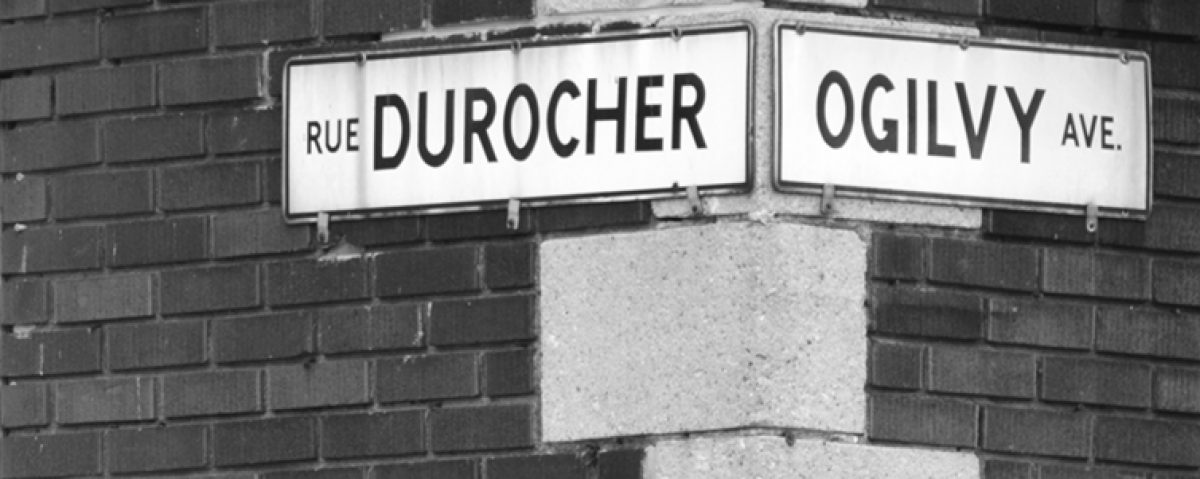
Long distance running once had more purpose — say, chasing an enemy across the savannah to jam a spear into his throat, or being chased to have that thing with a spear done to you.
Then again, you might be running after food, and that’s definitely more useful. Animals run faster than we do but can’t run as far, so you will eventually catch one if you keep it up. Messengers also ran long distances in the old days, but that was their job. We know of at least one who, after gasping out news of a victory over the Persians, died on the spot. Or so the legend goes.
At the ancient Olympics, foot races were strictly sprints, so forget about the Greeks: no staying power. Some native peoples in the Americas, however, did run long distance races, and I suppose that was for glory.
I’m still trying to puzzle out why I run. The ancient inducements — vengeance, hunger, news, glory — no longer apply. My moods are under control, my fridge is full and I have a phone. As for the much-discussed runner’s high, I’m still waiting….
The compulsion is a mystery.
Cross-country gulping
I had a high school gym teacher who was a devotee of cross-country running. Close-cropped silvery hair, lean physique, pointy nose: he actually looked like a greyhound. A Brit, of course, as the Brits pretty much invented and excelled at cross-country running for generations.
Since our school was at the foot of Mount Royal, there was simply no escaping his mania. At least once a week, we’d be forced to jog along Park Avenue and take the urine-drenched tunnel at Duluth, emerging from the other side dopey with low-level ammonia poisoning. We began our ascent beside the bronze lions of the George-Étienne Cartier Monument, taking the sloping path to the right, then up the 400-odd steps, past the cross and on to Beaver Lake.
Here we’d pause, gulping air and hating our lives. By this point our lungs were on fire and the bones in our trembling legs had dissolved.
Shamelessly, I tried to weasel out of it by claiming bronchitis. Others produced dubious doctor’s notes. They feigned injury, wept openly. The greyhound wasn’t buying it.
“Up we go, lads!”
Of course, a few of my classmates were naturals, with lean muscles, massive hearts and lungs, and arteries like garden hoses. They held a steady pace all the way, effortlessly loping along and out of sight within minutes of our start.
Paul was one of these gifted boys. He had a Montreal Gazette route and persuaded the paper to sponsor him on a bike ride to Vancouver, literally cross-country — more than 5,000 km. This was long before such feats were common, so he did the distance, quietly and alone, and took the train back, paid for by the Gazette. Not a penny was raised for cancer, the homeless or universal understanding.
After his summer ride, Paul showed me his mouldering maps and a curled Hillroy exercise book that contained a daily log. He averaged more than a hundred miles each day (160 km), pitching his tent and unrolling his sleeping bag wherever he happened to conk out.
Running: The Movie
A couple of years ago, I saw a black and white movie from the early Sixties titled The Loneliness of the Long Distance Runner. It’s pretty raw, in the realist manner of post-war cinema. Angry young men with impenetrably thick accents thoroughly pissed at the upper classes. While North Americans were riding an economic boom, the English were still clearing rubble and struggling under punishing austerity — as were most Europeans.
The movie is about a kid in the North of England, probably about Paul’s age, who’s caught robbing a bakery and is packed off to reform school (Borstal schools, they called them). He discovers cross-country running, which somehow gives focus to his identity and rebellion. It’s a far cry from Chariots of Fire, offering limited uplift, reconciliation or redemption, and certainly no haunting Vangelis score.
But it’s sometimes grimly funny, as when he boasts, “Running has always been a big thing in my family, especially running away from the police.”
At least this kid got something from long-distance running. For me, it remains utterly pointless. No ball or puck to put into a net. No exhilaration, no sense of satisfaction.
But the utter pointlessness is precisely the point — like writing these dispatches each week. They are useful to no one; they offer no information or even informed opinion. And yet I keep putting one foot in front of the other, one word after another.

Thanks for this very instructive read Spyro. Reading you is always a highlight of my day. Love the way you mix all these facts into one hell of a satisfying read. You’re a great talent, Bravo!
LikeLiked by 1 person
Thank you, dear friend. Always a pleasure to hear from you.
LikeLike
This piece had me pondering my own pursuits and laughing out loud – that’s something. More than enough I’m hoping. Should the pointlessness of it all get the better of you, can I have your phone?
LikeLike
You can have my full fridge, too.
LikeLike
Love it. I must admit that I invariably get a high after running and become immune to CNN, Trump, Korea, Russia and all other evil around the world….but only for a while.
LikeLike
Lucky man: sounds like you HAVE to keep running. Thanks for reading, Jean.
LikeLike
One of your best sentences was near the end where you write that pointlessness is the point. I am not a runner and see no point in running, but now that you’ve pointed out the pointlessness, I see the point.
LikeLiked by 1 person
Well put, Claudia. And I’m not sure if this piece is so much about running as it is about writing.
LikeLiked by 1 person
But I always thought you were running for my company…😉
LikeLike
Of course I am! But you’re not always there. Today, for example: where were you when I needed you?
LikeLike
I run because I love the social contact while talking to friends on a long run. I love running because I can be by myself and sort through my thoughts. I run to push myself to run a bit faster and see what my limit is. I run slowly in a comfortable rhythm and forget I am running. I run in the woods and I run on city streets. I run in my neighbourhood and I run in foreign countries. I run errands in the city because it is easier than driving a car.
Running can be anything I need it to be.
LikeLike
After your very personal list, I like your summary about running being anything you need it be. Or want it to be? Then again, I came to running later than most, so after a lifetime of playing one competitive sport or another, it’s a drastic adjustment to “why.” It’s a bit like the writing, frankly. I wrote with great purpose and focus for a long time, and now I’m doing it with almost no compass or map (or so I fool myself into thinking).
LikeLike
Keep doing whatever it is you are doing when writing. You make us laugh. You paint pictures in our minds. You help us look at life in a new way. You release memories we had buried a long time ago. You challenge us to reflect. Pretty powerful, these posts of yours!
LikeLiked by 1 person
Exactly!
LikeLike
Oh, thank you all. You give me courage.
LikeLike
Ditto! Perfectly put Judi!
LikeLike
Just got to reading this today. Excellent! Thankfully Judi articulated exactly what I would have liked to have said if I could have articulated it. If you get what I mean. Keep doing what you’re doing.
LikeLike